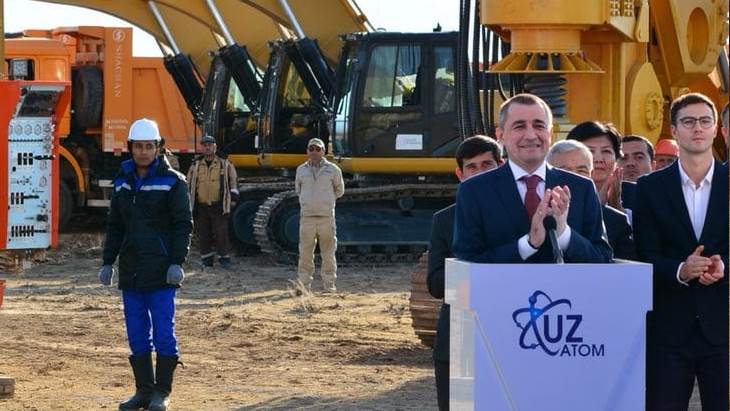Uzbekistan’s ambition to include nuclear power in its energy mix was unveiled in October last year by Uzbek and Russian presidents, Shavkat Mirziyoyev and Vladimir Putin, and the two countries signed a cooperation agreement to build a nuclear power plant in the republic.
Central Asia's most populous nation has one of the fastest growing economies in the world. The World Bank is forecasting GDP growth of about 5% this year and next, and 5.5% in 2020. Current projections indicate that, to match these trends and consumer demand, it will need to roughly double its electricity output by 2030.
Its first-ever nuclear power plant will consist of two VVER-1200 reactors, scheduled for commissioning in 2028 and 2030, at a site near Lake Tuzkan, in the Farishsky district.
"The two units that we are building, with 1200 MW each, will be followed by two more units. The site that has been chosen takes into account the siting of four units,” Sultanov said. Construction of the next two units of the same capacity will take less time and expense, as the infrastructure will already have been established, the minister added.
Uzbekistan is not new to nuclear power, however, and has been involved in researching nuclear technologies for 60 years; its Institute of Nuclear Physics of the Academy of Sciences operates a 10 MW research reactor. It has been a member of the International Atomic Energy Agency since 1994.
The country has faced a delay of up to 20 years in its ambition to introduce nuclear power to its energy mix, Sultanov told Kun.Uz.
"Our president has repeatedly spoken about this. During this time, we have almost lost all of our nuclear physics experts. We were on the verge of closing our research reactor and only through the efforts of our president, have we me managed to save everything," he said.
Having indigenous uranium resources makes nuclear power an obvious choice for the country, he said, particularly since it will provide cheap and sustainable electricity for many decades to come.
According to the news agency, Uzbekistan’s electricity needs are expected to roughly double by 2030, from to 69 terawatt hours to 117 TWh. Without the introduction of new sources of generation, it faces a deficit of about 48 TWh.
Russian Rosatom's construction of the first two units will add 2400 MWe, or 21 TWh of electricity per year and, by 2030, will account for nearly 18% of Uzbekistan’s total electricity generation.
The former deputy prime minister, Sultanov has been the head of the energy ministry since it was established, in February this year.





_13505.jpg)
_87975.jpg)
_67826.jpg)
_87695.jpg)






